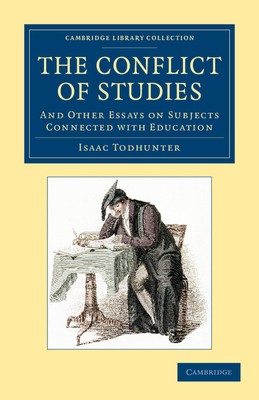
- We will send in 10–14 business days.
- Author: Isaac Todhunter
- Publisher: Cambridge University Press
- ISBN-10: 1108059376
- ISBN-13: 9781108059374
- Format: 14 x 21.6 x 1.5 cm, minkšti viršeliai
- Language: English
- SAVE -10% with code: EXTRA
Reviews
Description
The nineteenth century was a time of great reform in education, with debate focusing on such questions as who should be educated, in what manner, and to what degree. Given the technical advances brought about by the Industrial Revolution, rigorous mathematical education was seen by many as essential. A mathematician, educator and examiner for the University of Cambridge, Isaac Todhunter (1820-84) was also known as a prolific and very successful author of mathematics textbooks. In his day, he was considered an influential, albeit somewhat conservative, figure in mathematical education. In these six essays, first published in 1873, he discusses topics raised by the reform movement (for which he had little sympathy), such as the examination system, teaching methods and materials. Born of Todhunter's vast experience in the field, this work reflects an insider's perspective and remains relevant to students and scholars interested in the history of mathematics teaching and the University of Cambridge.
EXTRA 10 % discount with code: EXTRA
The promotion ends in 22d.09:40:39
The discount code is valid when purchasing from 10 €. Discounts do not stack.
- Author: Isaac Todhunter
- Publisher: Cambridge University Press
- ISBN-10: 1108059376
- ISBN-13: 9781108059374
- Format: 14 x 21.6 x 1.5 cm, minkšti viršeliai
- Language: English English
The nineteenth century was a time of great reform in education, with debate focusing on such questions as who should be educated, in what manner, and to what degree. Given the technical advances brought about by the Industrial Revolution, rigorous mathematical education was seen by many as essential. A mathematician, educator and examiner for the University of Cambridge, Isaac Todhunter (1820-84) was also known as a prolific and very successful author of mathematics textbooks. In his day, he was considered an influential, albeit somewhat conservative, figure in mathematical education. In these six essays, first published in 1873, he discusses topics raised by the reform movement (for which he had little sympathy), such as the examination system, teaching methods and materials. Born of Todhunter's vast experience in the field, this work reflects an insider's perspective and remains relevant to students and scholars interested in the history of mathematics teaching and the University of Cambridge.


Reviews